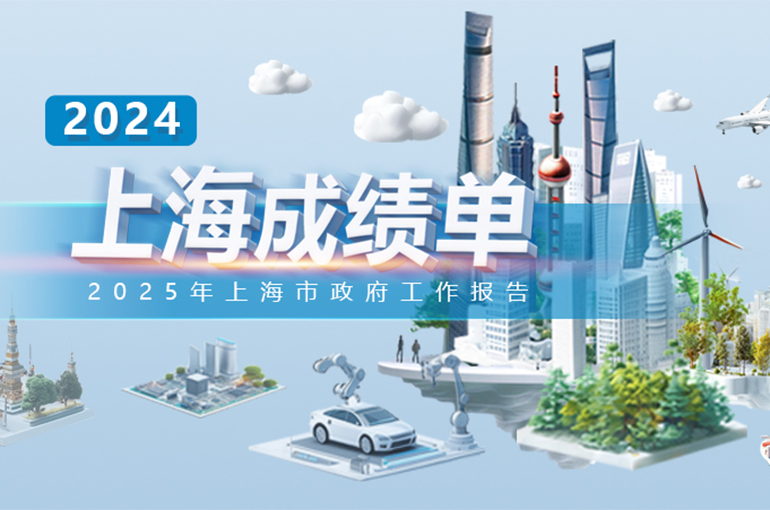 Shanghai Sets 2025 GDP Growth Target at Around 5%
Shanghai Sets 2025 GDP Growth Target at Around 5%(Yicai) Jan. 15 -- Shanghai’s gross domestic product should grow about 5 percent this year, Mayor Gong Zheng said when presenting the city’s government work report today at the annual session of the Shanghai People’s Congress, which is the metropolis’ legislative advisory body.
The report laid out an ambitious plan for the year ahead. Local general public budget revenue will increase by 2 percent and the urban jobless rate should be kept within 5 percent, the report said. Research and development expenditure should account for 4.5 percent of the city's GDP.
Per capita disposable income should grow in sync with economic growth, the report said. The consumer price index, which is a gauge of inflation, should climb around 2 percent.
Investment in major projects this year is likely to reach CNY240 billion (USD32.7 billion), 25 urban villages will be renovated, more than 600,000 new jobs will be created, and 70,000 units of affordable rental housing will be built, it added.
The report also outlined some of this year's key tasks. In terms of consumption, it emphasized the need for targeted initiatives to lift consumer confidence, boost commodity consumption and upgrade service-oriented spending. By increasing income levels and reducing the financial burdens on low- and middle-income groups, people’s purchasing power and enthusiasm for spending are expected to grow.
International Consumption Hub
The metropolis will continue to transform itself into an international consumption hub, organize large-scale promotional events to stimulate spending, and create new consumption scenarios that integrate both online and offline platforms.
The city will vigorously develop the first-issue economy, which refers to the launch of new products, new scenarios and new content to cater to the ever-increasing needs of consumers. It will also nurture the silver economy, the night-time economy and the live-streaming economy. Efforts will be made to promote new types of consumption, automobile consumption and green consumption, as well as to accelerate the creation of home-grown consumer labels by domestic trendy brands.
The metropolis will foster emerging sectors such as online performances and RV camping, aiming to host high-profile, popular and quality performances, competitions and exhibitions, so as to promote the integrated development of its commerce, tourism, culture, sports and exhibition sectors. To make it easier for visitors from abroad to spend money, it will develop the tax-free and tax-refund economies and strive to create a safe and welcoming consumer environment.
In the fields of science, technology and finance, Shanghai plans to conduct pilot trials of the digital Chinese yuan, bolster the construction of high-level R&D institutions, introduce special policies to ease market access in Pudong district and establish a "one-stop" service hub for domestic and international talent. The city will also set up the second batch of innovation zones connected to the Shanghai pilot free trade zone.
Cutting-Edge Fields
In terms of industrial development, Shanghai will launch new rounds of the "Shanghai Plan" for its three leading industries of integrated circuits, biomedicine and artificial intelligence. Strategic layouts will be made in cutting-edge fields such as cell gene therapy, brain-computer interfaces, sixth-generation mobile networks, quantum computing and fusion energy. It will formulate mechanisms for tackling key technologies, adjusting university discipline settings, refining talent cultivation models and accelerating the building of a youth-friendly city.
At the same time, Shanghai will strive to become China’s first stop for inbound tourism, speed up the construction of landmarks such as the Grand Opera House and the Industrial Museum. The city will ensure the completion and opening of the Shanghai Literature Museum, the smooth launch of the Legoland Resort and the continuous expansion of the core area of the International Resort.
The report also calls for increased efforts to phase out outdated vehicles and non-road mobile machinery, build electric vehicle charging networks, improve product carbon footprint management systems and eliminate 400 items made using obsolete production capacity.
Editor: Kim Taylor